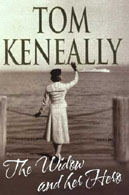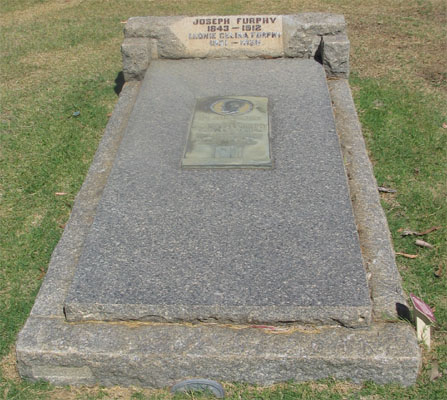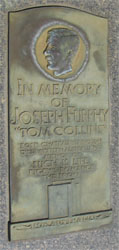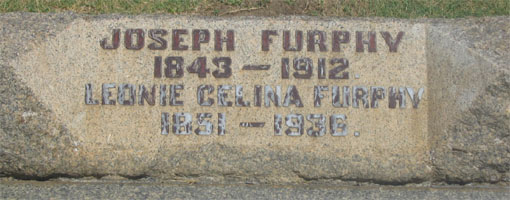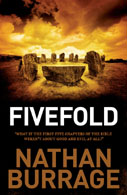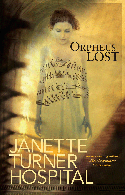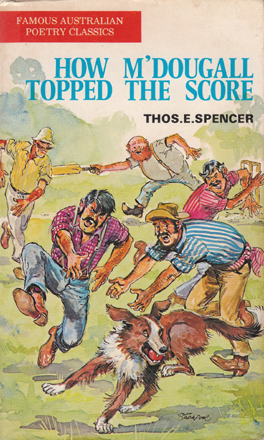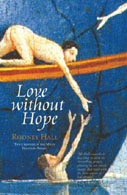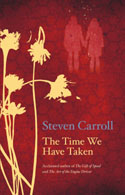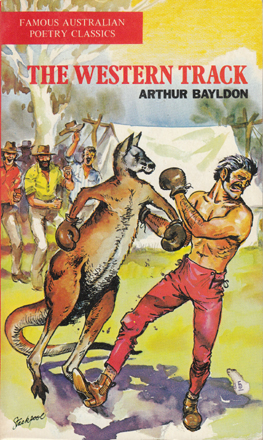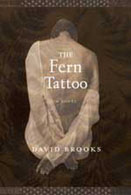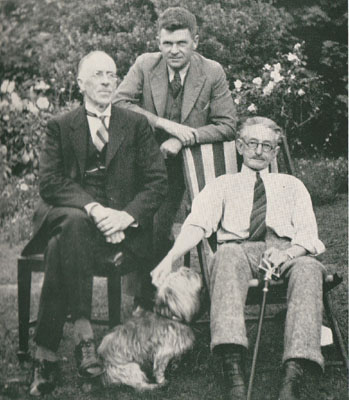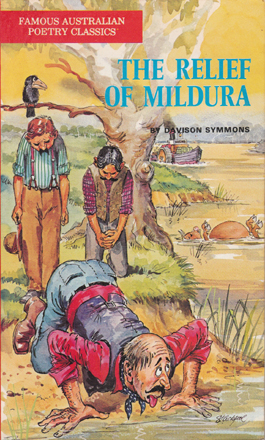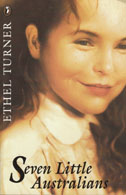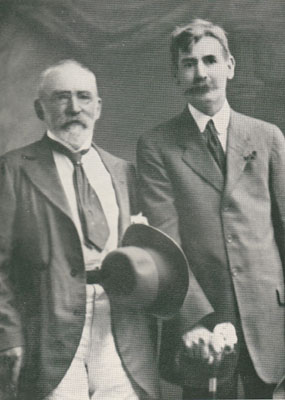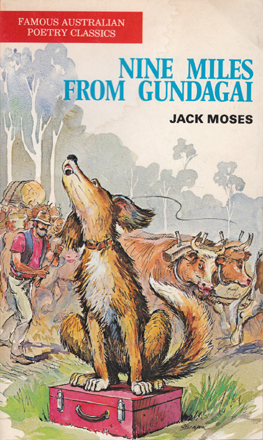(Some Memories of "DEN")
I was very far away, in the heart of Central Australia in fact, when word reached me of the death of my old cobber C. J. Dennis - "effusively yours, Clarence James Michael Stanislaus, Dennis," as he once signed a note to ine. We were closely in touch for years, batching together whenever I could snatch a spell at his early Toolangi home (how different from to-day's fine structure!), swapping writings and hitting one another up with criticism, and sharing lively days and nights when the Sentimental Bloke made him prosperous and he came to live near me in Camberwell. I was even "best man" when he had to go to hospital for an operation.
With a stout friend, Garry Roberts (then manager of the Cable Tramways), we had had many conferences before the "Bloke" was offered to Angus & Robertson. A Melbourne publisher refused it and we debated whether it would not be better to get it out as a subscription volume at 5/- or perhaps in a popular form at one shilling. George Robertson's acceptance settled all that.
I met Den first at "Toolangi on the rise" in a hut used occasionally by a group of us as a camp. It filled a corner of the allotment in which stood the sawmiller's house which was then his home. To-day that corner is part of the garden. The hour was midnight. We had walked from Healesville. Comfortably tired, we had snuggled into our swags and were deep down in the well of sleep when Den came knocking at the door and demanding to know who we were. He had arrived home late and had seen the glimmer of our fire through the chinks.
We let him in, politely stirred the dying fire, and we "hung round" and said the conventional things. The night was bitterly cold, none of us had enough clothes on, the breeze chilled our bare legs . . . and Den settled himself for a long yarn! Had I known him as well then as I did later I should have promptly returned to bed and talked from there: as it was we stood about and waited for him to go. But he was enjoying himself too much; that humorous perception of his had promptly sized up the position, and he waited to see how long we would keep it going. It ended by our retirement (with apologies) and Den's going off with a hearty laugh.
The "Arden" (as he was finally to name his home) of these days with its spreading lawns, its colourful flower beds, its tennis court, its clear pool reflecting banks of bloom, its garage, its double windows opening out into the very heart of great wattles - this "Arden" holds no suggestion at all, save position, of that original house which Den, in puckish mood, had christened "Sea View" - the point being that to view the ocean one would have to look through several hills and an untold amount of tall forest.
There it was that I spent week-ends and holidays with him, and there I learnt the origin of his famous "Sentimental Bloke," and watched the story grow. The original of the Bloke was a city lad, a typical product of the Melbourne lanes, who boasted that, as a plumber, he was always called in by the Chinamen when any repairs were needed in their opium dens or gambling shops. Every year he broke away and spent a few months on general jobs in the country. Den had passed many an improving hour with this tough when he came to Toolangi. A rumour went round one year that he was after a settler's daughter. Public opinion was stirred to its depths; the very worst was expected. Then came the shock. He dropped in on Dennis, who had heard the rumours and expected smug complacency or vulgar triumph from the hardened culprit. To Den's surprise the youth betrayed real concern: "Gor blime, Mr. Dennis," he said, almost weeping, "Gor blime, I've got sisters of me own!"
So was born the Sentimental Bloke - a larrikin in whom rough manners and crude language were found to be compatible with a soft heart.
Den could play most musical instruments. He made his own banjo - a hoop, a cat skin, a piece of blackwood turned in his lathe - the only things he bought were strings. With that on his knee and leading the singing, we would sit on the verandah and "rouse the night owl" (and often the morning thrush) "in a catch." To Den's strumming we improvised verses to well-known tunes or adapted, shamelessly, classical poems to nigger minstrel airs. In retrospect we seem a pretty pair of vandals to sing Oscar Wilde's heart-breaking "Ballad of Reading Gaol" to the tune of "Playing on the Old Banjo." But that was only one of our sins.
Den's first dog, a fox terrier named Bloke, was then alive. He was really a word-hound, or so Den said, his speciality being the running down of synonyms for his master. Bloke had a passion; he would rise suddenly from his mat, generally when we were at meals, and step, ever so quietly, stiff-legged and watchful, to a corner, of the room where we had reason to believe a snake lived under the flooring. Bloke wanted that snake. He would stand like a statue, waiting and hoping while the rustlings, inaudible to us, proceeded; but the serpent was too wise to come forth, and the dog would sigh and return to his slumbers.
That amazingly successful work, "The Songs of the Sentimental Bloke," was completed at "Sunnyside," the Sassafras home of his good friends Mr. and Mrs. J. G. Roberts, to whom he dedicated the volume. There he had for a bedroom a retired 'bus, and there we spent many happy hours, for "Sunnyside" became a rendezvous for the literary and artistic world. We decorated the inside of the bus with pictures and mottoes. I had walked up on one occasion and been badly dusted by motors. My contribution was the slogan: "A motor car is not fit to be out of."
Dave Low, now probably the best known and most highly paid cartoonist, in the British Empire, and Hal Gye, whose Cupids adorn the "Sentimental Bloke," were frequent visitors. Den improvised some verses describing these cobbers and himself in which their characters were rhythmically outlined.
Each was depicted as a bird living in the forest of Ingavar (the name of a bush homestead near by). The Davlo Bird called constantly "Ink, ink, ink!" and it mourned because
"Late or soon the swift Cartoon
Must soar to the Utmost Star,"
although Ingavar was inkless.
Gye, being short of stature, was naturally a tomtit - the Halgi Tit
"Which loves to sit,
On the frond of a swaying fern
And croon and croon to a low loose tune
A nervous nude Nocturne."
His song was "Chow-wite, chow-wite!" - an appropriate noise for a tomtit and an artist.
Den himself became the Denawk seeking "rhyme, rhyme, rhyme, all fat and prime" for his meat. He proclaimed himself as filled "with a purpose grim for the synonym" and as "foraging near and far, rending his prey in a rhythmic way on the gums of Ingavar."
By the way, a dinner we gave in Melbourne to Den, Gye and Low will long be remembered, if only for Hal's speech. It was a quaint effort. He claimed one merit, and one only, for his drawings of the naked Cupids which personate Bill and Doreen in Den's book. "I know Doreen's navel is correct," he asserted, "for I drew it from my own in front of the mirror."
When we were all met it was Den's baritone which led in those ribald and tuneful old songs "Landlord, Have You Any Fine Wine?" and "My Name is Samuel Hall," and it was he who taught us the Dago Rag, which begins: "I've got a brother Carus', he singa da note." In a period prone to the pornographic in literature it is notable that C. J. Dennis, handling a subject which dealt with low life, and using slang as his medium of expression, was nowhere guilty of impropriety of language or indecency of thought. The Sentimental Bloke is a larrikin classic, and a clean one.
It has been said that Dennis was not a poet of high rank but he had true poetic feeling, and as a dexterous rhymster and begetter of quaint ideas he has had no equal in Australia. His work is richly charged with humour and a fine feeling for his fellow man. Australian letters gained greatly by his pen.
I am grateful, looking back, for his companionship. If I were asked to write his epitaph I should put this on the stone:
Den.
Delicious laughter haunts the place,
Though here Doreen weeps with the Kid.
Our Yorick sleeps within this space -
The Bloke has passed: oh, dip the lid!
First published in Australian National Review May 1939
Note:
You can read the text of Ingavar.
